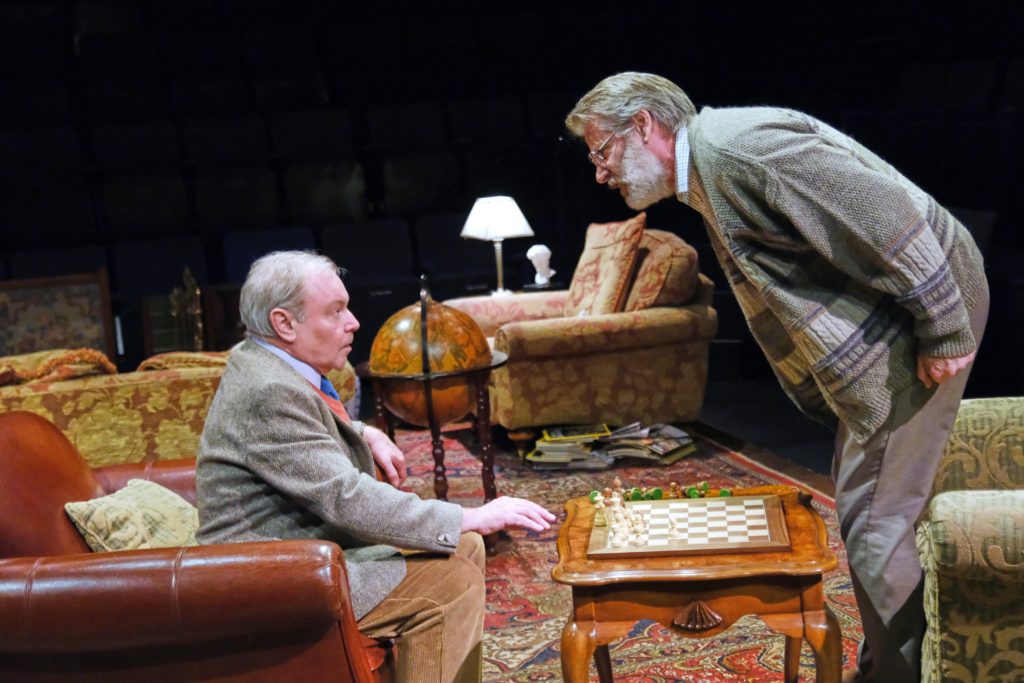
IT was supposed to be Mission Impossible. No-one had ever staged Michael Frayn’s play within a play in the round in 43 years.
“Good luck!” said Frayn when told of director Paul Robinson and designer Kevin Jenkins’ meticulous but surely mad plan.
Well, the joke is now on all the naysayers – and you, dear readers, will be the ones having the last laugh if you head to the SJT.
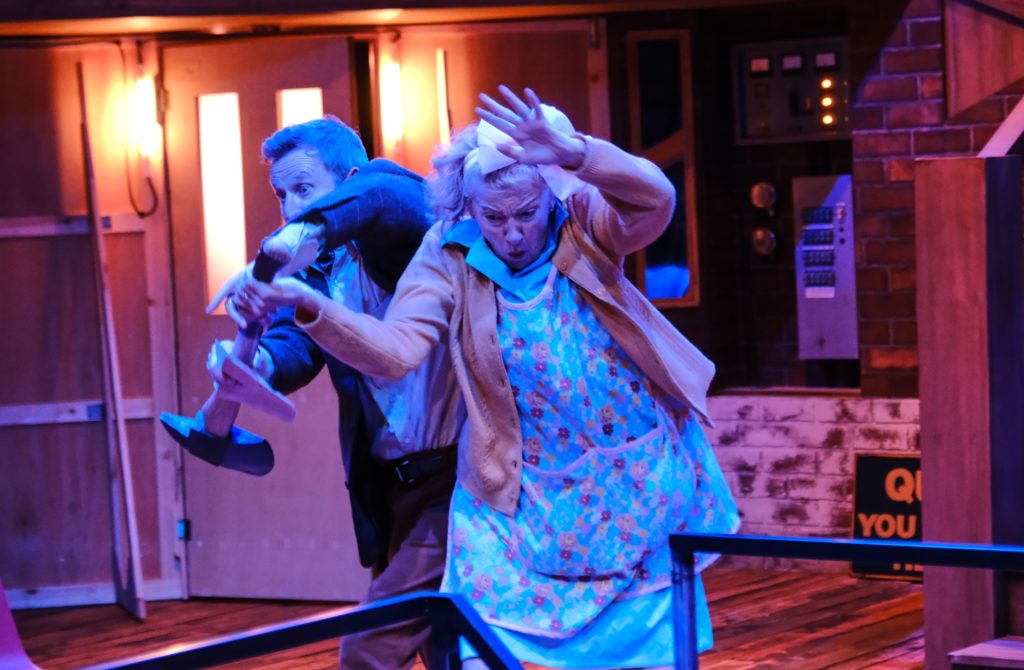
This, after all, is the Mecca for theatrical comedies, the home of myriad Alan Ayckbourn premieres, and who should be looking on from his familiar box but Sir Alan on Tuesday night (12/8/2025).
Frayn’s farce is so good that frankly it is indestructible, but Robinson and Jenkins’ thoroughly rounded production makes it even more joyous. Chaos conducted with precision and audacity.
The nature of theatre in the round is its 360-degree inclusivity. You can see everything, yet without being able to see everything (given the inevitability of actors having their back to you), and part of the pleasure is seeing the enjoyment of all around you.
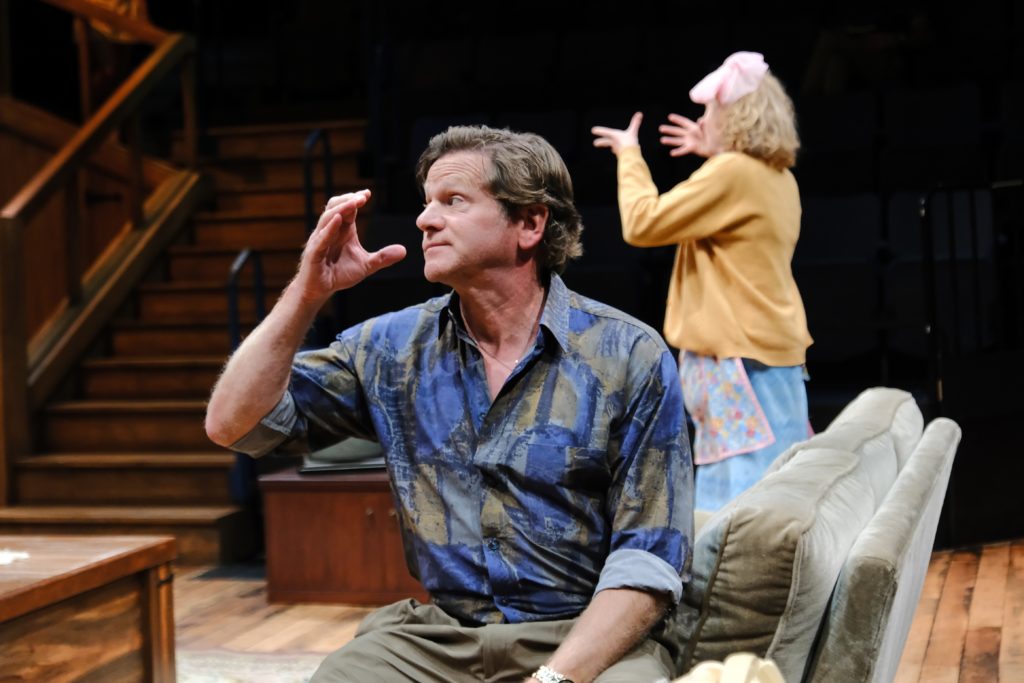
On top of that is the proximity of the actors: they and you are in the lion’s den; the amphitheatre on a not-so-Colosseum-sized scale. In this instance, you can see, hear and feel the fear of the play within the play going wrong, the heartbeat of Frayn’s classic farce – and the precursor to all that Mischief-making by The Play That Goes Wrong gang.
In a nutshell, in the round, your awareness of the physicality of acting is heightened and, in turn, your appreciation of the comedic skills of the likes of Ayckbourn stalwart Christopher Godwin, Andy Cryer and SJT debutant Alex Phelps, who has charmed York audiences in the recent past with both his dexterity and the way he makes words dance.
Farce is all about doors – or doors and plates of sardines in the case of Noises Off, as exasperated director Lloyd Dallas (SJT debutant Adam Astill) reminds his hapless company as they prepare for a tour of the fractious and ever increasingly fractured farce Nothing On that will close, it just so happens, in Scarborough.
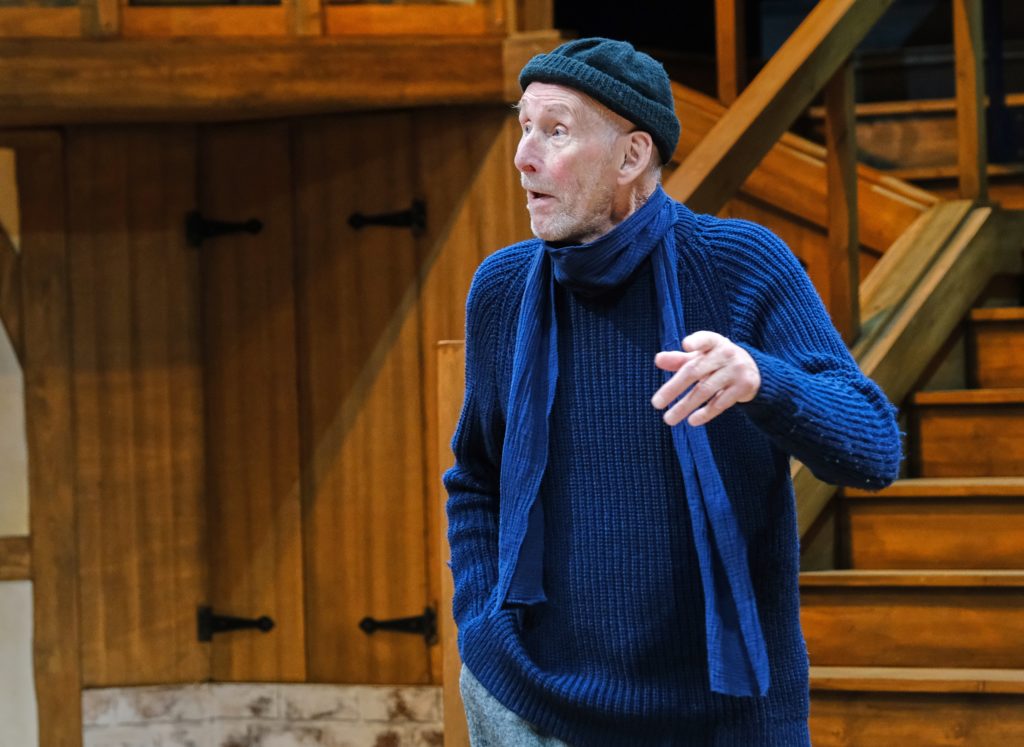
The SJT stage has three doorways, all put to maximum use with doors placed in them, and then Jenkins adds the all-important mezzanine level, with its three doors, plus a trapdoor entry and exit in Act Two.
We join the never-still Astill’s Lloyd initially in the rehearsal room for Nothing On, a clunky, maladroit farce with a bizarre obsession with sardines.
This utterly actorly thespian, soon to give his Richard III in Aberystwyth, must somehow pull together Lloyd’s bank of has-beens (Godwin’s drunkard veteran Selsdon Mowbray and Susan Twist’s tour-backing Dotty Otley); touring plodders (Cryer’s over-thinking, physically fragile Freddie Fellowes and Valerie Antwi’s admirably unflappable Belinda Blair), and wannabes (Alex Phelps’s young buck Garry Lejeune and Olivia Woolhouse’s company ingenue Belinda Blair).
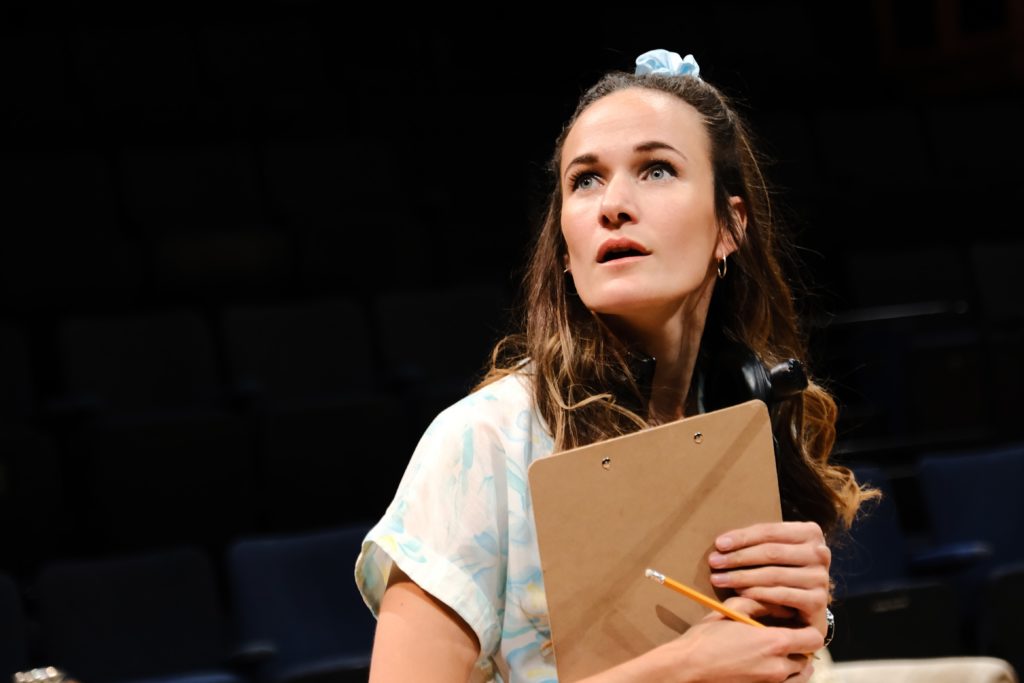
Then add the ever-harassed technical team, Charlie Ryan’s dogsbody Tim Allgood and Annie Kirkman’s equally overworked Poppy Norton-Taylor.
All the stage world is here: the luvvies and the loveless, the boozer and the philanderer, the sex, the drudgery and the rock’n’rollicking fallouts of a theatre tour, experienced in rehearsal room, then backstage mid-production run and finally on the tour’s catastrophic, calamitous last night.
While your reviewer would never dissuade anyone from partaking of a tipple in either interval, it is rewarding to watch the set changes conducted with a choreographic flourish as doors are reversed and the set turns inside out in the transition from backstage to stage. Ryan’s Tim and Kirkman’s Poppy stay in character to oversee the changes.
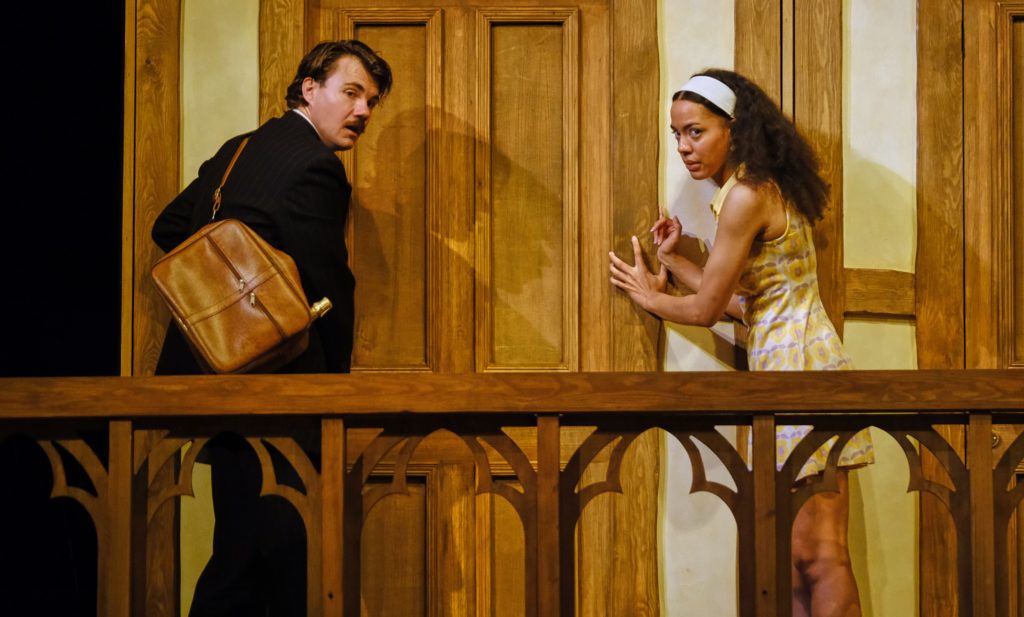
Robinson’s cast is wonderful, especially Twist’s dotty old-stager Dotty, Godwin’s scene-stealing Selsdon and, above all, Phelps’s Garry, with his stair tumbles and earnest air in never quite saying what he feels the need to express.
Simon Slater’s music is irresistibly perky, matching the desperate desire of Nothing On’s cast to prove the show must go on, no matter what befalls the warring players.
You will love the moment when Astill’s Lloyd, arriving for the final performance, is amazed to discover the staging is in the round: a soupcon of meta-theatre in a tour-de-farce masterpiece.
Noises Off, Stephen Joseph Theatre, Scarborough, until September 6, 7.30pm plus 1.30pm Thursday and 2.30pm Saturday matinees. Box office: 01723 370541 or sjt.uk.com

